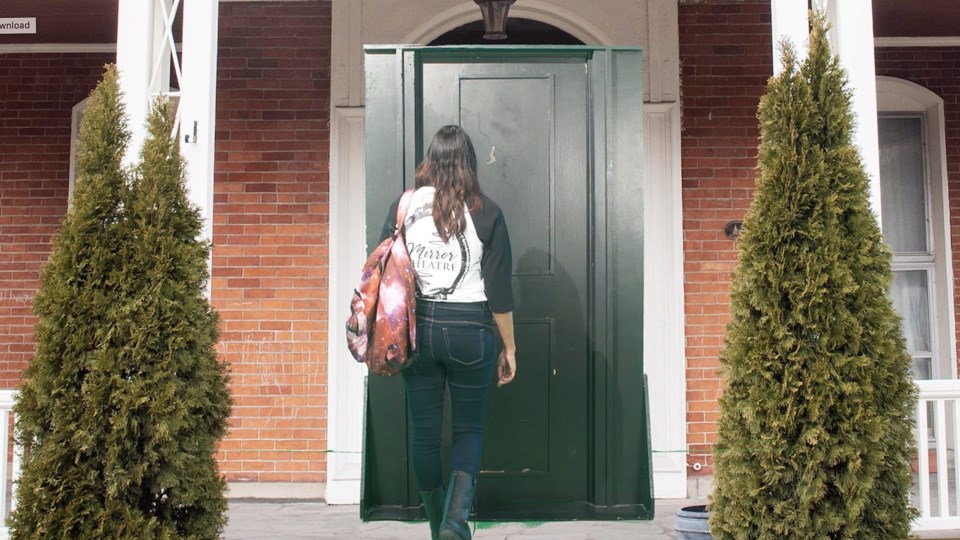This story, written by Sarah Ackles, originally appeared on The Brock News and is published here with permission:
Through a partnership with local community organizations, Brock University is working to shed light on the complexities of homelessness for women in Niagara.
In an effort to help break the ongoing cycle of mental illness, addiction and homelessness experienced by many women in the region, a pilot project was launched last year between Brock, YWCA Niagara Region, the Canadian Mental Health Association and Community Addictions Services of Niagara.
Mental health and addictions services were brought in-house at the YWCA, providing women in need with the necessary services in a single location, reducing the need to repeatedly share their story to access different resources and helping to eliminate stigma related to their situation.
Brock researchers and students investigated the impact of providing addictions and mental health counselling at YWCA Niagara emergency shelters, deeming the single-stop model more effective.
The resulting research study, titled, “The experiences of homeless women with mental illness of onsite partnership between women’s homeless shelters and mental health service providers,” was led by Principal Investigators Lynn McCleary, Professor of Nursing at Brock, and Elisabeth Zimmermann, Executive Director of YWCA Niagara.
Co-investigators on the project included Joe Norris, Chair of Dramatic Arts at Brock, Brenda Grant, Mental Health Coach at the Canadian Mental Health Association and Cindy Jennings, Addictions Coach at Community Addictions Services of Niagara.
The Women’s Xchange $15K Challenge, which supports research projects that address women’s health issues at the local level, funded the study.
Zimmerman said it has been a positive and rewarding experience working with Brock on this important initiative.
“It is very important to dispel myths and for the community to understand the complex nature of homelessness and the need for access to affordable housing, which has, and continues to be, at a crisis state in our community,” she said. “Too often, in terms of research, we find there isn’t a gender lens attached to the project — this seems to be particularly true of homelessness — so the other powerful result of this project is that it speaks to women’s experiences of homelessness.”
McCleary said working on the study gave her a better appreciation for the importance of services like the YWCA, Canadian Mental Health Association and Addiction Service of Niagara, and the impact these services can have on people’s lives when they work collaboratively.
It also connected the outreach work she does with social services in the community, both as a registered nurse and as a co-chair of Brock’s United Way Committee.
“I know community agencies that receive United Way funding make a difference in the well-being of my students, my neighbours and my friends,” McCleary said. “Having the opportunity to listen to the women’s stories also connected me to my early clinical work as a mental health nurse and provided me with insights that will be helpful when I’m teaching Nursing students about nurse-client relationships and about mental health nursing.”
The results of the study will be shared with service users and providers, and funders of mental health, addictions and housing services through forthcoming research publications and a series of videos created by Norris and community theatre group Mirror Theatre.
Currently comprised of Brock students, staff and other community members, Mirror Theatre has created more than 70 social issues plays that explore everything from workplace safety, mental health, academic integrity, patient-centred care, alcohol abuse and the first-year university experience.
“We dramatized testimonials from the women who accessed support services at the YWCA in order to develop short, educational videos that show the experiences these women felt on the street and in the shelter,” Norris said. “They are meant to be conversation-starters that challenge our preconceptions of homelessness and those who experience it.”
Mirror Theatre President and recent graduate Mike Metz (BA ’19, BEd ’19) hopes the videos will help to give a face to the issue of homelessness.
“Ultimately, we are including the component of empathy into academic research, something that you do not always see,” he said. “We take research and we turn it into something that people can relate to, something they can understand. In doing this work, I have realized that people can act in different and more positive ways.”
The videos are currently being edited by videographer Brad McDonald, a Master’s student in Social Justice in Equity Studies at Brock. When completed, they will be available on Joe Norris’ Playbuilding website.
Research publications are forthcoming.



